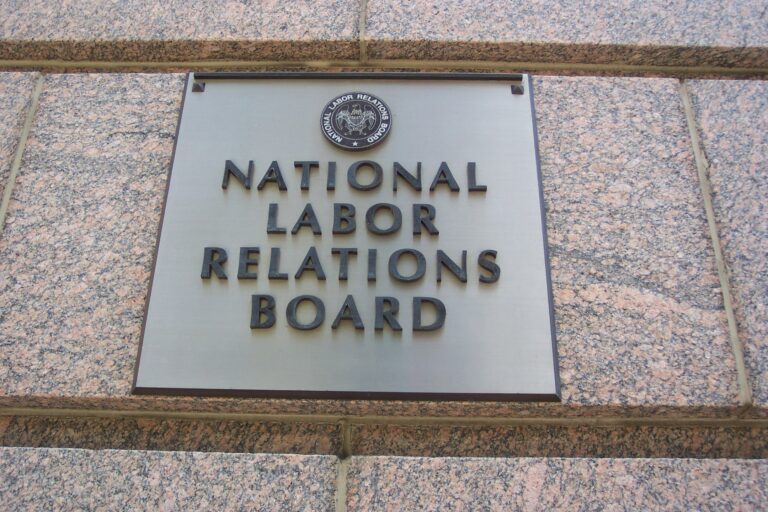
Dr. David Doorey is an Associate Professor of Labor and Employment Law at York University in Toronto.
Last week, Uber Canada and UFCW-Canada made a surprise announcement that they had reached “a historic national agreement” for representation rights affecting some 100,000 Uber workers in Canada. The “Agreement” has not been made public yet, but the press releases provide some details.
Under the Agreement, Uber recognizes a right of UFCW to represent drivers and couriers in Uber’s dispute resolution process regarding “account-related disputes,” such as complaints about wrongful de-activation, including before third-party arbitrators. The cost of this representation, and of the arbitration, will apparently be borne by Uber and UFCW and free to any driver who opts for UFCW representation. The agreement also permits UFCW to “meet with Uber on a regular basis to discuss health, safety, and other related issues,” according to the UFCW press release.
In exchange for these representational rights, UFCW agreed to help Uber lobby governments “to enact reforms that provide new benefits and preserve worker choice on when, where, and if to work.” This sounds like a promise by UFCW to help Uber’s lobbying efforts to persuade Canadian governments to adopt its “Flexible+” model which would cover Uber drivers for some but not all labor legislation protections. Other unions in Canada have been fighting hard against Uber’s proposed model and there is concern that the Ontario government is leaning towards adopting a “third category” approach in impending legislative reform. If in fact UFCW has sided with Uber in these reforms, it will no doubt be considered a shocking betrayal of labor solidarity by much of the Canadian labor rights community.
Pre-recognition “representation agreements” are relatively rare but not without precedent in Canada. For example, in 2008, the Canadian Auto Workers Union entered into a form of neutrality agreement (the Framework of Fairness) with auto-parts giant Magna International that entitled the union to a range of favorable organizing rules in exchange for its agreement to accept Magna’s basic internal human resources model of representation and an open-ended “no strike” pledge. Other Canadian unions have entered into private extra-statutory agreements with employers that define certain rules of engagement, similar to neutrality agreements in the U.S., as I discussed in an earlier paper.
The Legal Framework
As a general rule, no legal issues arise from an agreement by a union to team up with an employer to promote a certain legislative agenda. If Uber and UFCW agree on how the law should be reformed, they are free to work jointly to promote that reform. Nor does Canadian labor law prohibit an employer from permitting its employees to be represented in disciplinary hearings by a third-party, including a union representative. Therefore, as a starting point, there is nothing on the face of the Uber-UFCW Agreement that jumps out as unlawful, based on what we know so far and without seeing the agreement.
However, while representation agreements between unions and employers are not per se unlawful in Canadian labor law, several interesting legal issues can arise from them. As a starting point, it is important to understand that under Canadian labor law, Uber drivers are most likely already “employees” for the purposes of collective bargaining statutes. That’s because, as I explained in an earlier OnLabor post, most provinces include “dependent contractors” within the statutory definition of “employee.” While there may be legitimate questions about whether Uber drivers meet the common law definition of “employee,” there is a strong likelihood that they are “dependent contractors.” It came as little surprise, for example, that the Ontario Labor Relations Board ruled recently that “Foodora” couriers were “employees” and covered by the provincial Labor Relations Act. It would be surprising if Uber drivers are not similarly ruled to dependent contractors in cases currently pending before the Ontario Board.
The fact that Uber drivers are probably already covered by provincial collective bargaining laws in Canada situates the new Uber-UFCW agreement into a particular legal context. Labor laws apply, including provincial unfair labor practice provisions. The next important part of the story is that UFCW is not the only union that has been active organizing Uber drivers and couriers. For example, Gig Workers United, an organizing arm of the Canadian Union of Postal Workers (CUPW), has a strong presence in the industry. The sudden announcement of Uber’s special deal with UFCW came as a complete surprise to other unions in the sector. The fact that multiple unions are active organizing Uber drivers, and that Uber has now given special access and representation rights to only one of those unions, UFCW, raises interesting legal issues.
Potential problems arise from the fact that Canadian labor legislation, like the NLRA, prohibits employers from participating in or interfering with the “administration or selection” of a union (see Section 70 of the Ontario LRA). This law exists to prevent employers from giving preference to one union over another and to prohibit employers from persuading their employees to support a preferred union. On the day that the agreement was publicly announced, Uber sent an electronic message to all of its drivers to share “the good news about what today’s Uber Canada-UFCW Canada agreement means for building a better future for drivers.” The announcement explained to workers that they could opt to have UFCW representation for free and that UFCW would act as worker voice on health and safety matters.
Essentially, Uber has now urged employees to contact UFCW. These actions appear on their face to constitute “support” for UFCW of the sort that Canadian unfair labor practice provisions expressly prohibit (again, see Section 70 of the OLRA). Labor boards have interpreted these provisions purposively and have permitted some types of cooperation between employers and unions, especially employer support to unions that already represent their employees. However, labor boards become concerned when the “support” takes the form of giving one union preference during a live organizing campaign involving multiple unions. We may be into that scenario now.
For example, what if CUPW advises Uber that it represents 200 of its drivers in Canada and demands the same representational rights just granted to UFCW, including a communication sent to all drivers that they have the option to be represented by CUPW as well as UFCW? A refusal to grant this request could expose Uber to an unfair labor practice complaint alleging unlawful support for UFCW and interference in the selection of a union.
A related issue would arise if UFCW seeks to use its newfound access to Uber drivers to mount a formal unionization campaign and application for certification. Under Canadian labor law in some provinces, a union cannot be certified if it has received employer “support,” and a contract is not a “collective agreement” if the employer provided support to the union (for example, see Section 53 of the OLRA). This means that by entering into a side representation agreement with Uber, UFCW has possibly sacrificed the possibility of it later attempting to become the legal collective bargaining representative of Canadian Uber drivers.
This short post has flagged just a few of the legal issues that could arise from the surprising new Agreement between Uber and UFCW in Canada. As to the larger question of whether the Agreement will ultimately benefit Uber drivers, the jury is out. I have my doubts.









Daily News & Commentary
Start your day with our roundup of the latest labor developments. See all
July 11
Regional director orders election without Board quorum; 9th Circuit pauses injunction on Executive Order; Driverless car legislation in Massachusetts
July 10
Wisconsin Supreme Court holds UW Health nurses are not covered by Wisconsin’s Labor Peace Act; a district judge denies the request to stay an injunction pending appeal; the NFLPA appeals an arbitration decision.
July 9
the Supreme Court allows Trump to proceed with mass firings; Secretary of Agriculture suggests Medicaid recipients replace deported migrant farmworkers; DHS ends TPS for Nicaragua and Honduras
July 8
In today’s news and commentary, Apple wins at the Fifth Circuit against the NLRB, Florida enacts a noncompete-friendly law, and complications with the No Tax on Tips in the Big Beautiful Bill. Apple won an appeal overturning a National Labor Relations Board (NLRB) decision that the company violated labor law by coercively questioning an employee […]
July 7
LA economy deals with fallout from ICE raids; a new appeal challenges the NCAA antitrust settlement; and the EPA places dissenting employees on leave.
July 6
Municipal workers in Philadelphia continue to strike; Zohran Mamdani collects union endorsements; UFCW grocery workers in California and Colorado reach tentative agreements.